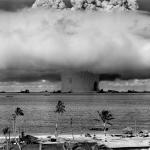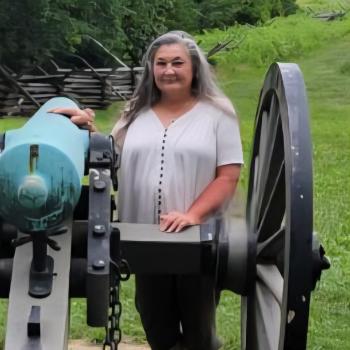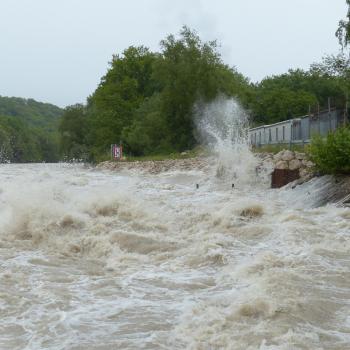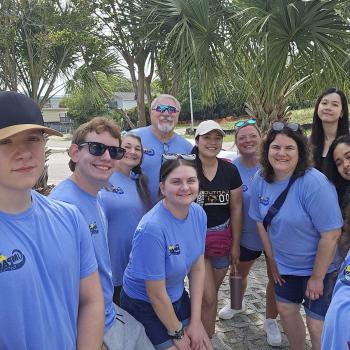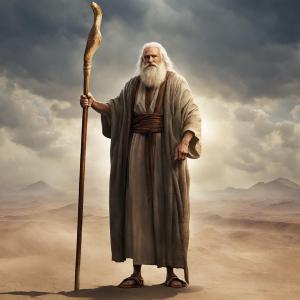
The Battle Strategies of Exodus 17
Challenge #1
The whole Israelite community set out from the Desert of Sin, traveling from place to place as the Lord commanded. They camped at Rephidim, but there was no water for the people to drink. So they quarreled with Moses and said, “Give us water to drink.”
Moses replied, “Why do you quarrel with me? Why do you put the Lord to the test?”
But the people were thirsty for water there, and they grumbled against Moses. They said, “Why did you bring us up out of Egypt to make us and our children and livestock die of thirst?”
Then Moses cried out to the Lord, “What am I to do with these people? They are almost ready to stone me.”
The Lord answered Moses, “Go out in front of the people. Take with you some of the elders of Israel and take in your hand the staff with which you struck the Nile, and go. I will stand there before you by the rock at Horeb. Strike the rock, and water will come out of it for the people to drink.” So Moses did this in the sight of the elders of Israel. And he called the place Massah and Meribah because the Israelites quarreled and because they tested the Lord saying, “Is the Lord among us or not?”
Challenge #2
The Amalekites came and attacked the Israelites at Rephidim. Moses said to Joshua, “Choose some of our men and go out to fight the Amalekites. Tomorrow I will stand on top of the hill with the staff of God in my hands.”
So Joshua fought the Amalekites as Moses had ordered, and Moses, Aaron and Hur went to the top of the hill. As long as Moses held up his hands, the Israelites were winning, but whenever he lowered his hands, the Amalekites were winning.
Challenge #3
When Moses’ hands grew tired, they took a stone and put it under him and he sat on it. Aaron and Hur held his hands up—one on one side, one on the other—so that his hands remained steady till sunset. So Joshua overcame the Amalekite army with the sword.
Then the Lord said to Moses, “Write this on a scroll as something to be remembered and make sure that Joshua hears it, because I will completely blot out the name of Amalek from under heaven.”
Moses built an altar and called it “The Lord is my Banner.” He said, “Because hands were lifted up against the throne of the Lord, the Lord will be at war against the Amalekites from generation to generation.”
It’s no secret that Moses did not have an easy job leading the Israelites out of Egypt and into the Promised Land. Knowing Pharoah, he probably anticipated problems from him, but I wonder if he expected the grumbling and complaining that seemed very often to come out of his own people, the ones he was trying to help.
Strategy #1
The Word tells us that the people quarreled with Moses at Rephidim because they were thirsty. It is pretty obvious that the Israelites needed more than water. They needed to start tusting the Presence of Almighty God. For Moses to locate a hidden stream or pool in the desert would not have helped the situation. Although, perhaps, miraculous, hat would have elevated a man. So God arranged to make the people understand that He was still performing miracles on their behalf through His servant Moses, just as He had in Egypt..
The people did not see God stand at the rock. They saw Moses and they saw the staff–the instruments God had used in Egypt and at the Red Sea. Moses was still the vessel God chose to introduce His wonders. Moses with his staff was God’s strategy.
Strategy #2
God’s second strategy still involved Moses, but he had to take up a different posture. It was a public appearance in a different kind of battle. The Amalakites were a very substantial army who deliberately came seeking the Hebrews to annihilate them. This problem was not just people complaining, and Moses was not the only one likely to be hurt if God did not intervene.
Moses, for the moment, represented God to the people, and the staff represented the power God had given him. Moses sent out warriors for the battle, then went to the top of the hill above the battleground so he could be seen. He held up his hands, and the staff could also be seen. But for whatever reason, God determined that Moses would not be on stage alone and he would no longer seem invincible. Whenever his hands were raised, Israel was winning the battle, but when his arms tired (he was not, after all, God Himself), and he lowered them, the Amalikites were winning the battle.
Maybe it’s a good moment to pause and just imagine that maybe if Moses didn’t show signs of getting tired, losing his temper, human stuff, the Hebrews would have worshiped him. They exhibited a tendency to get confused about things (remember the golden calf?). So maybe God decided that it was time to let the people know that Moses was human.
Strategy #3
Aaron and Hur were on hand to help. They made it possible for Moses to sit in a way that the army could still see him, and they supported his arms so they would remain raised, and Israel went on to win the battle. God’s strategy required the supporting strength of Moses’ brother Aaron and Caleb’s son Hur to gain the victory. One holding up one arm and one holding up the other was a necessity to escape defeat.
The Banner
Afterward, Moses built an altar and called it “The Lord is my Banner” – Jehovah Nissi. Sometimes I have heard that this is a reference to the Hebrew wedding ceremony and the chuppah.
“The chuppah symbolizes the new home to which the bridegroom will take his bride. In this context, the appearance of the bride and groom together under a chuppah before an assembly who have come to witness the event is in itself a public proclamation by them that they are now bonded together as man and wife. It is a prelude to intimacy, and thus a significant element in marriage.
“The cloth chuppah was originally draped around the bride and groom but was later spread out over their heads. In some places, a [prayer shawl] was draped over the couple or held above them. The single cloth under which the couple are joined thus symbolizes both the new household they are forming and represents the public recognition of their new status as man and wife” (https://www.myjewishlearning.com/article/the-huppah-or-wedding-canopy/).
Seeing Israel as the bride of Jehovah is a very pretty picture. We even used to sing as children, “I’m my Beloved’s and He is mine, His banner over me is love.”
However, in this context, I think the banner was more like a flag. Picture the famous statue of Iwo Jima. A flag or banner showed who was in control of the battle, and God was definitely in control!.
God’s Battle Strategies for Us
It is no different for any of us in our battle with sin and Satan. It is not a battle we can win on our own. We are aware that we are absolutely helpless in Satan’s crosshairs if Christ is not our strength and shield. There are definitely battles we must fight on our own when Christ is our only help. He is enough! However, God has made it known to us that we are to rely on one another for strength as well. The wise author of Ecclesiastes says quite clearly that “two are better than one…pity the man who falls and has no one to help him up…though one may be overpowered, two can defend themselves” (Ecclesiastes 4:9-12). It is a great passage for married couples, but the point extends to friends, not only spouses. The right kind of friend “sticks closer than a brother.” David and Jonathan were such friends. Paul always took someone with him on all his missionary journeys. Jesus sent the disciples out two and two. The letter to Hebrews says, “Let us consider how we may spur one another on toward love and good deeds. Let us not give up meeting together, as some are in the habit of doing, but let us encourage one another–and all the more as we see the Day approaching” (Hebrews 10:24-25). (https://payh.org/whose-holding-up-your-hands/).
The same three strategies that God made available to Moses in Exodus 17 are still available to us. Sometimes He will tell us to listen for His instructions and go alone before our enemy in faith that He will be there, as Moses went to the rock. Sometimes He will tell us to take a couple of prayer warriors with us to encourage us as we fight, as Moses went to the battle with the Amalekites. Still other times, God’s strategy will include others physically helping us out in the thick of battle, to support us and keep us in the posture God demanded, as God used Aaron and Hur.
And you, sometimes, will watch as God performs great miracles through His chosen vessel. And you, sometimes, will pray for another in support of what God is going to do through him or her. And you, sometimes, may be called upon to literally or symbolically hold someone up so the plan of God will be manifest.
Listen. What is His strategy for you?
God bless you and bring you many victories!



